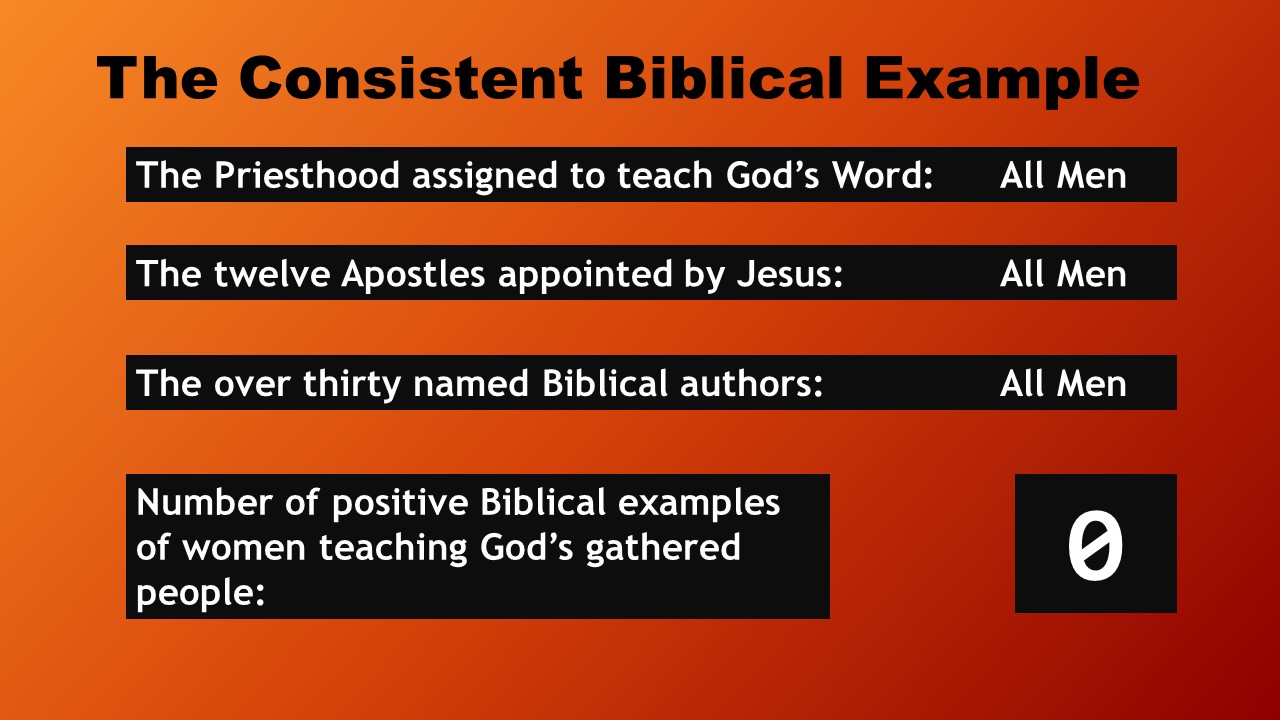We don't actually know if all the authors of the Bible were Jews. Most certainly were. However, it is fairly likely that Luke was a Gentile. Luke wrote Luke and also Acts. The strongest evidence that Luke was a Gentile is found in Col 4:10-14 where Paul identifies the only people with him who were Jews and then goes on to separately mention Luke.
Luke's knowledge of the OT is pretty high. It is arguable whether he was a gentile or a diaspora Jew. Regardless, I don't think the point that you were making about women being among the groups is good enough to argue this point. One might argue on the same basis that none of the people who are in those groups were caucasian therefore caucasians can't teach. You are on much better ground when you quote from Timothy rather than appealing to circumstances, particularly when those circumstances derive from the culture in which the events took place. If a 'teacher' today gathered together a group of men and women, nobody would bat an eyelid, but had Jesus done it, even the Romans would have been scandalised. And if the scandal was so great, Jesus' message would have been lost.
As it was the female followers he had was pretty scandalous.
I don't think the fact that the priests and the Twelve were all Jews is completely analogous to them being all men. At the time of the priesthood and the time when Jesus was on earth, God's work was especially focused on the Jewish people as the starting point for reaching all nations. But God's work always included both Jewish men and women, and many women are mentioned in the Old Testament and in the gospels. Yet there is not one clear, positive, explicit example of a woman being used by God to teach gathered groups which included men, and there are many examples of men doing this. I don't think this should be seen as a coincidence.
There is not one clear example of a disabled person teaching, despite the fact that they were clearly around at the time.
Are disabled people not allowed to teach either.
The thing is Mark, that I object to this line of reasoning as it is not explicit in its meaning. It treats the circumstances in which the things happened as though it were part of the law... which it is not. To use this argument in support of your views as derived from scripture is reasonable, because it is supportive, but you start with it which implies that it is the most important part of the argument and to me it is flawed.
Actually, it's far from certain that Junia was an Apostle. All we know of Junia we know from just one verse in the Bible. That verse can very reasonably be translated to mean that she was well known by the Apostles, rather than that she was an outstanding apostle. These different translations bring this out
A more literal translation is much less ambiguous indicating that the NIV is right and the other two wearing their cultural bias on their sleeve (which is a shame).
The irony of it is that earlier translations changed the name of Junia to Junius because they did not believe a woman could be an apostle... which helped fuel the idea that women are somehow substandard.
Even if she is called an apostle, it could be in the sense of being a messenger, rather than in a sense similar to the twelve. We just don't know.
This is eisegesis. You are imposing your views that women can't possibly have taught in the NT on to the text rather than letting the text inform you what was happening: Junia, an apostle (probable) would have taught groups of people (which is what apostles did). It is wishful thinking.
It's very clear that part of the role of a pastor is teaching the church. That's why "able to teach" is a qualification (pastors=elders=overseers in NT), see 1 Timothy 3:2.
I don't think that it is all that clear. Ephesians lists 'Teacher' as a separate 'ministry' and Pastor actually means shepherd and in the context refers to a carer and leader. The implications are that all of the ministries have some aspect of teaching, which is why Junia is significant.
Yes, the Bible says that there is neither male nor female in Christ. That means there are no distinctions when it comes to our need for salvation and the way in which we are saved.
But apparently now the slaves can't teach, nor the gentiles. For we are all one in Christ Jesus, but not in the church which makes the distinction... precisely what Paul (who wrote those words) berated the Corinthians for doing when they took communion.
Consider another passage: Acts 2, 'I will pour out my spirit on all people... both men and women'. God does not distinguish between men and women when the Holy Spirit comes and offers his gifts (all disciples were present and began speaking in tongues), which includes teaching... only the church appears to make that distinction.
It does not cancel out the verses which teach distinct roles, including this important
passage:
NIV 1 Timothy 2:12 I do not permit a woman to teach or to assume authority over a man; she must be quiet.
Paul to Timothy: *I* do not permit a woman....
It is also difficult to reconcile with his commendation of Junia, Phoebe, Priscilla, Mary for their varied roles, although here I think it is more wishful thinking on my part. An argument against 1 Tim 2 is much more fraught with difficulties than your earlier point about none of the apostles being female.


